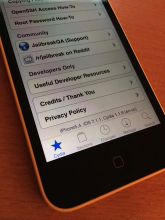Microsoft plans to patch IE zero day -- eventually
Microsoft said Thursday it plans eventually to patch a vulnerability in Internet Explorer 8 that it's known about for seven months, but it didn't say when.
A security research group within Hewlett-Packard called the Zero Day Initiative (ZDI) released details of the flaw on Wednesday after giving Microsoft months to address it. The group withholds details of vulnerabilities to prevent tipping off hackers but eventually publicizes its findings even if a flaw isn't fixed.












































































